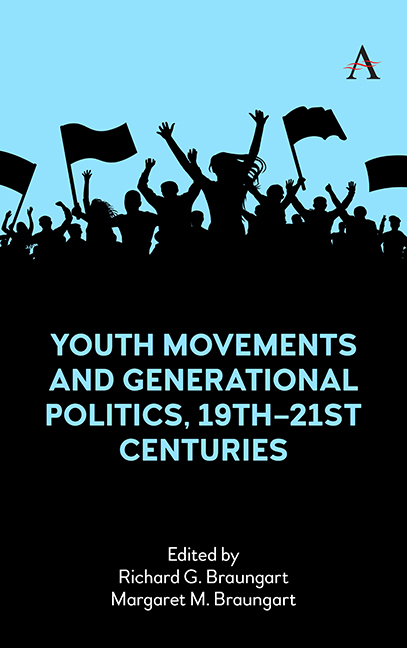18 - The Life-Course Development of Left-and Right-Wing Youth Activist Leaders from the 1960s
Published online by Cambridge University Press: 18 November 2023
Summary
This study examines the life-course development of selected former political activist leaders from the 1960s. Three theoretical perspectives contribute to our understanding of life-course development: life cycle, socialization, and political generations. While most research of 1960s American student activists focused on left-wing activists, this study investigates the lives of both left- and right-wing political activists. Based on life-history interviews with 13 leaders of the left-wing Students for a Democratic Society (SDS) and 11 leaders of the right-wing Young Americans for Freedom (YAF), three distinct stages in the life course of these activists are examined and compared: their formative childhood and adolescent years, their 1960s activist-youth stage, and their postactivist adult lives. Results indicate that (1) there was political continuity in the life-course development of SDS and YAF leaders; (2) data support the life-cycle, socialization, and generational explanations for youth movements, and suggest further that these factors interacted at each stage in the life-course development of the former 1960s activist leaders; and (3) while similar in life-cycle and generational dynamics, SDS and YAF leaders differed most in their political socialization experiences.
Introduction
“Never Trust Anyone Over 30”; “Ban the Bomb”; “Make Love, Not War”; “Hell No, We Won't Go”: These are faint echoes of the turbulent 1960s Generation. This was a time when political conflict divided along age-group lines, as young people in the United States and throughout the world formed political generations by organizing against what they perceived to be a disappointing set of conditions created by their elders and worked for social and political change. During an era of political generational activity, there is not only heightened intergenerational conflict but also intragenerational conflict, as the members of the same generation form competing generation units to redirect the course of politics (Braungart and Braungart, 1986, 1989; Heberle, 1951; Mannheim, 1952). In the 1960s two prominent opposing generation units squared off against each other—Students for a Democratic Society (SDS) on the political left and Young Americans for Freedom (YAF) on the political right.
Since the eruption of the student movement in the United States, there has been an ongoing effort to put the 1960s Generation into perspective.
- Type
- Chapter
- Information
- Youth Movements and Generational Politics, 19th-21st Centuries , pp. 455 - 492Publisher: Anthem PressPrint publication year: 2023



